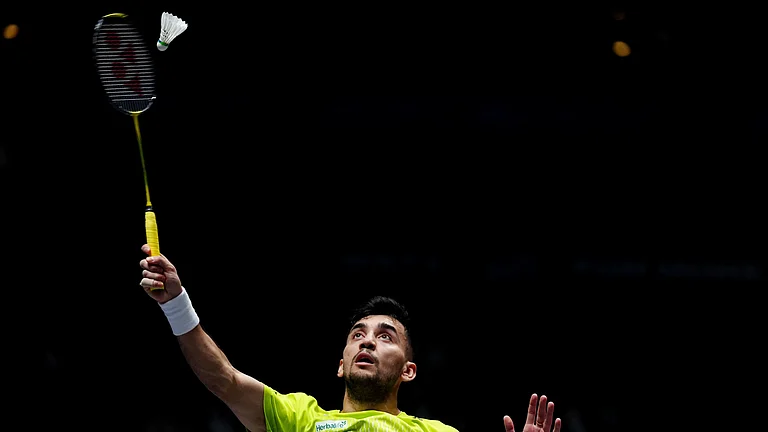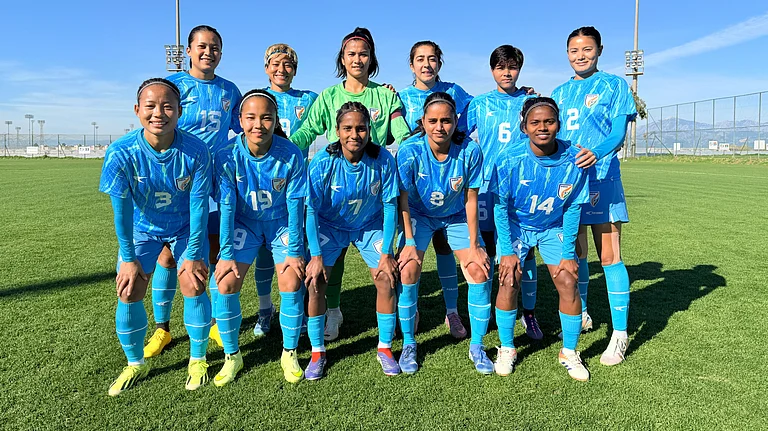Jawaharlal Nehru University, the site of Kanhaiya Kumar and Umar Khalid’s boisterous 2016 protest against capital punishment, Aishe Ghosh’s anti-Citizenship Amendment Act protest in 2019, now faces a ban on demonstrations. Considered one of India’s most prestigious colleges, JNU is known for stirring political conversations among its students.
However, recently, the varsity administration released a new student manual of Rules of Discipline and Proper Conduct of Students, restricting dharnas, hunger strikes, group bargaining, putting up posters or any other form of protest within a 100-metre radius of an academic or administrative building at the JNU campus. Anybody violating the new rule can draw a penalty of up to Rs 20,000 or rustication and expulsion from the campus for two semesters.
According to the manual, made public on December 11, students can draw up to Rs 10,000 as a fine for participating in hunger strikes, dharnas, group bargaining and any other form of protest within 100 meter radius of any academic and administrative complexes, or blocking the entrance of the complexes.
Under Category-III, it becomes more severe as “acts of violence and all forms of coercion such as gheraos, sit-ins or any variation of the same”, “gheraos, laying siege or staging demonstrations”, “disrupting/blocking normal movement of person(s) or traffic in the premises” can draw up to Rs 20,000 fine, eviction from hostel, cancellation of degree, rustication or even expulsion.
The manual also mentions under the category that any other act which “may be considered by the Vice-Chancellor or any other competent authority” will be “an act of violation of discipline and conduct”. The latest changes in the disciplinary rules have been seen as a clampdown on the democratic culture of JNU and a deterrent to the fundamental Right To Freedom.
“This is an attack on our freedom. First, they restricted us from protesting in front of the admin block, then vice-chancellor house, academic buildings and hostels. Eventually, they have stopped us from protesting anywhere on campus. This is not a step towards discipline but a mentality,” says MD Danish, JNU Student Union General Secretary.
In September end, some students staged a protest over a water crisis at the hostel. “A few days ago, the students received a show cause notice over the protest. This is unacceptable. This was not even a political issue, it was for a basic right,” Danish says.
At the same time, he adds, a gathering organised by the Rashtriya Swayamsevak Sangh on campus was not stopped by the administration.
JNU is funded by the government but some believe that the government has had a role to play in restraining dissenting voices. Speaking on the National Education Policy (NEP), Danish says, “It is no surprise that JNU was one of the first institutions where NEP was tried to be implemented.” While NEP has been introduced to revolutionise the education sector, many student activists have felt that it will hamper the role of unions.
“We have been raising a demand to conduct student union elections for a while now. The VC keeps promising us dates but does not live up to it. Now we are told it will be conducted after the PhD admissions in January.”
The JNUSU, supported by 11 members of the different students' outfits and hostel presidents, has written a submitted a memorandum to the vice chancellor demanding that all disciplinary actions against the students ordered by the Chief Proctor Office (CPO) should be rescinded and the new varsity manual be withdrawn.
“In the last few months, the university administration has used the office of the Chief Proctor to carry out a political vendetta against student activists and representatives raising important student community issues. It has converted the office of the Chief Proctor (CPO) into a centre for Political Inquisition, and has dropped all pretence towards being an impartial body and has crossed all bounds of shamelessness and partisanship,” it said in a statement.
“We shall be forced to initiate peaceful non-cooperation with the entire JNU administration if the demands are not addressed before the commencement of the winter semester in 2024.”
Recently, students at JNU have staged protests over several issues including fee hike and student union elections. On December 23, the union will hold a torchlight march to protest against the penalties.






















